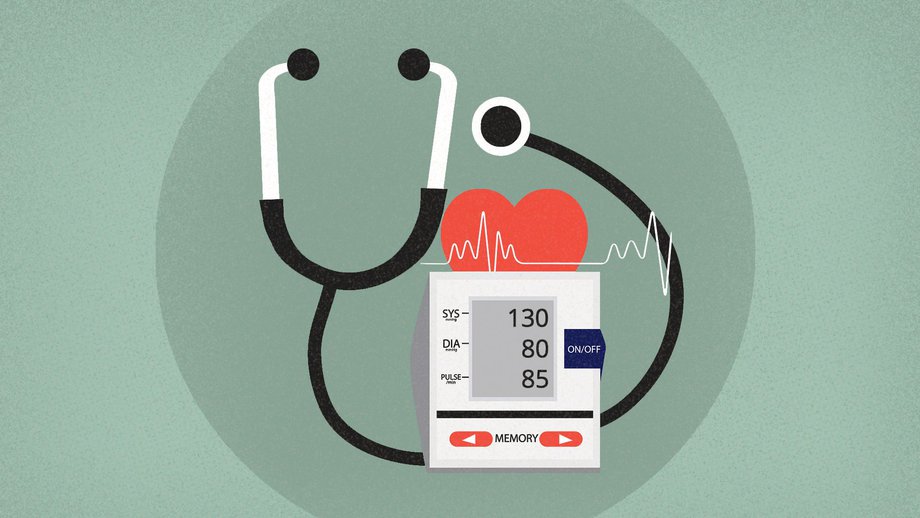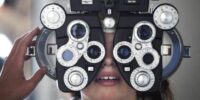Can Hypertension Lead to Retinal Damage

Hypertension, a common chronic medical condition characterized by elevated blood pressure levels, has been associated with various complications throughout the body. Of particular concern is its potential link to retinal damage, known as hypertensive retinopathy.
This article aims to examine the connection between hypertension and retinal damage, highlighting risk factors, symptoms, and preventive measures. By adopting an objective and impersonal tone, this study seeks to present a comprehensive understanding of the relationship between hypertension and retinal damage, contributing to the existing body of knowledge in this field.
Key Takeaways
- Hypertensive retinopathy is a common manifestation of long-standing high blood pressure.
- Diagnosing hypertensive retinopathy involves a comprehensive ophthalmic examination, including fundoscopy.
- Hypertensive retinopathy can lead to significant visual impairment if left untreated.
- Early detection and management of high blood pressure can help prevent or minimize retinal damage.
The Link Between Hypertension and Retinal Damage
The relationship between hypertension and retinal damage has been extensively studied in the literature. Hypertensive retinopathy is a common manifestation of long-standing high blood pressure and can lead to significant visual impairment if left untreated.
Diagnosing hypertensive retinopathy involves a comprehensive ophthalmic examination, including fundoscopy to assess the integrity of the retinal blood vessels and the presence of characteristic findings such as arteriovenous nicking, copper wiring, and cotton wool spots.
It is crucial to identify and manage hypertension in order to prevent further retinal damage and preserve vision. Treatment options for retinal damage in hypertension include lifestyle modifications, such as controlling blood pressure through dietary changes and regular exercise, as well as medications to lower blood pressure and protect the retinal vasculature.
In severe cases, laser photocoagulation or surgical interventions may be necessary to prevent further vision loss.
Understanding Hypertensive Retinopathy
One important aspect to consider when studying hypertensive retinopathy is the relationship between elevated blood pressure and the development of pathological changes in the blood vessels of the eye.
Hypertensive retinopathy is a condition characterized by damage to the blood vessels in the retina due to prolonged high blood pressure. It is crucial to accurately diagnose hypertensive retinopathy in order to initiate appropriate treatment and prevent further vision loss.
The diagnosis of hypertensive retinopathy involves a comprehensive eye examination, including visual acuity testing, ophthalmoscopy, and retinal imaging.
Treatment options for hypertensive retinopathy aim to control blood pressure levels and reduce the risk of complications. Lifestyle modifications, such as adopting a healthy diet and regular exercise, along with antihypertensive medications, are commonly recommended.
In more severe cases, laser therapy or surgical intervention may be necessary to manage the retinal damage.
Risk Factors for Hypertension-Related Retinal Damage
Various risk factors contribute to the development of pathological changes in the blood vessels of the eye associated with elevated blood pressure. These risk factors include:
- Uncontrolled hypertension: Poorly managed high blood pressure can lead to damage in the blood vessels of the retina, resulting in retinal damage.
- Duration of hypertension: The longer an individual has been living with high blood pressure, the higher the risk of developing retinal damage.
- Severity of hypertension: Higher levels of blood pressure have been associated with a greater risk of developing hypertensive retinopathy.
- Other medical conditions: Certain medical conditions, such as diabetes and kidney disease, can further increase the risk of retinal damage in individuals with hypertension.
Understanding these risk factors is crucial in identifying individuals who are at a higher risk of developing hypertension-related complications.
Early detection and management of high blood pressure, along with regular eye examinations, can help prevent or minimize retinal damage.
Treatment options for retinal damage caused by hypertension may include blood pressure control, lifestyle modifications, and in severe cases, surgical interventions.
Symptoms and Signs of Retinal Damage in Hypertensive Patients
Symptoms and signs of retinal damage in patients with elevated blood pressure can manifest as changes in visual acuity and field, presence of retinal hemorrhages, and the appearance of hard exudates. Retinal damage in hypertensive patients can have a significant impact on their vision. It is important to diagnose retinal damage early in order to prevent further deterioration and potential vision loss.
Diagnosis of retinal damage in hypertensive patients is typically done through a comprehensive eye examination, which may include visual acuity testing, visual field testing, and fundus examination. Treatment options for retinal damage in hypertensive patients aim to control blood pressure and manage the underlying condition. This may involve lifestyle modifications, such as diet and exercise, as well as medications to lower blood pressure. Additionally, some patients may benefit from laser therapy or surgery to manage specific retinal complications.
Overall, early diagnosis and prompt treatment are crucial in minimizing the impact of retinal damage on vision in hypertensive patients.
Preventing and Managing Retinal Damage in Hypertension
Preventing and managing the development of retinal complications in individuals with elevated blood pressure requires early detection and intervention through regular eye examinations and appropriate treatment measures. Hypertensive retinopathy, a condition characterized by damage to the blood vessels in the retina, can lead to vision loss if left untreated.
To effectively prevent retinal damage and manage hypertensive retinopathy, the following measures should be considered:
- Blood pressure control: Maintaining blood pressure within the target range can help reduce the risk of retinal complications.
- Lifestyle modifications: Adopting a healthy lifestyle, including regular exercise, a balanced diet, and smoking cessation, can contribute to better blood pressure control and overall retinal health.
- Medication adherence: Strict adherence to prescribed antihypertensive medications is crucial in managing blood pressure and preventing further retinal damage.
- Regular eye examinations: Routine eye exams enable early detection of retinal changes and facilitate timely intervention to prevent or manage retinal complications.
Frequently Asked Questions
What Are Some Potential Complications of Hypertension Other Than Retinal Damage?
Potential complications of hypertension, aside from retinal damage, include cardiovascular disease and kidney disease. These conditions can arise due to the prolonged effects of high blood pressure on the heart and kidneys, respectively.
Are There Any Specific Medications That Can Help Prevent or Manage Retinal Damage in Hypertensive Patients?
Medication options and non-pharmacological interventions can be utilized to prevent or manage retinal damage in hypertensive patients. These strategies aim to mitigate the impact of hypertension on the retina, reducing the risk of complications.
Can Hypertensive Retinopathy Be Reversed or Cured?
The reversibility of hypertensive retinopathy and alternative treatments for the condition are subjects of interest. Further investigation is necessary to determine if hypertensive retinopathy can be fully reversed or cured.
Is It Possible to Have Retinal Damage Without Experiencing Any Symptoms?
Retinal damage can occur without any accompanying symptoms, leading to asymptomatic retinal damage. This raises the question of whether hypertension can cause such damage, necessitating further investigation into the relationship between the two.
What Are Some Lifestyle Changes That Can Help Reduce the Risk of Developing Retinal Damage in Hypertensive Patients?
Dietary modifications and exercise routines are lifestyle changes that may help reduce the risk of developing retinal damage in hypertensive patients. These interventions have been shown to improve blood pressure control and overall cardiovascular health.









